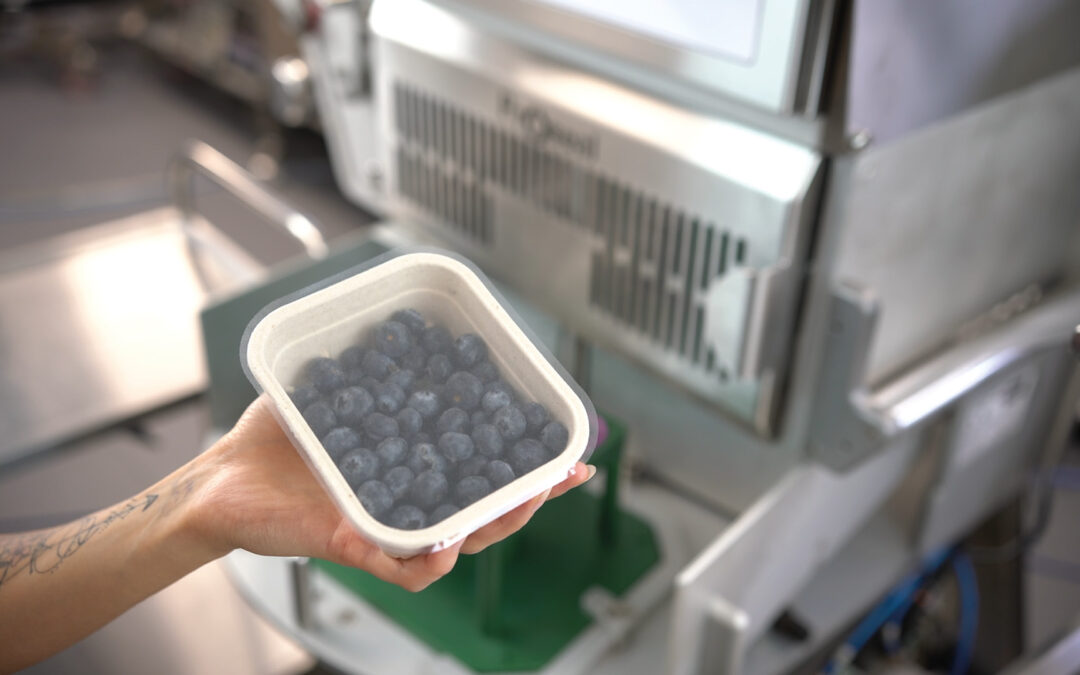A new packaging and packaging waste regulation
On 4 March 2024, the European Council announced its provisional political agreement with the European Parliament to introduce a new Packaging and Packaging Waste Regulation (PPWR). This comes at a time when the packaging waste generated in Europe is higher than the amount that is recycled. The provisional agreement includes a potential EU ban on single-use plastic packaging of less than 1.5kg for pre-packed fruit and vegetables. There are also implications for the use of compostable labels and bio-based plastic packaging on fruit and vegetables, with associated sustainability requirements. These are all measures to be agreed by Member State representatives, with the possible packaging and packaging waste regulation coming into force in a few years’ time.
Format changes fruit and vegetable packaging
Growers and packers need to be aware of an increasing movement towards loose fresh produce, more biodegradable materials, laser printing or the use of 100% recyclable packaging such as the Halopack. It will take time to assess the best solution that works well for the produce being grown and sold, as it will take trial and error to understand the effectiveness of packaging in protecting and preserving fresh produce.
Tray sealers and case pack functionality will need to adapt to variations in these packaging formats. New control measures will also help to improve the ‘right first time’ approach. At the same time, specific marketing standards (SMS) must be maintained to ensure that labelling information such as identification codes, product name, variety, origin of produce, classifications, size tolerances, commercial specifications, and official control marks are being managed. These serve as official labelling practices for the production, packaging, distribution, and sale of fruit and vegetables in Europe.
Managing change
Introducing new materials or equipment in preparation for regulatory changes can increase the risk of errors on the packaging line. Labelling may be incorrect, or the packaging and equipment settings may be wrong. These are potential eventualities of any new process that need to be managed and controlled. It is common for fruit and vegetables to be inspected at the end of production, which may be too late to prevent rework or waste for defects that occurred earlier in the process and during packing.
Reducing risk and eliminating rework
One way to reduce the risk and avoid the significant rework caused by incorrectly setting up a fruit or vegetable job is to implement an AutoCoding system that focuses on correct order set-up and inline inspection throughout the packaging process. Once the harvest and packing schedule has been approved, the defined product recipe, along with the required settings and parameters, is loaded into a central AutoCoding database or updated by an integrated planning system. At the touch of an AutoCoding HMI touch-screen, the equipment on the packaging line is automatically and simultaneously set up to meet the requirements of the job. This eliminates the risk of selecting the wrong job, coding incorrectly or selecting the wrong coding information due to human error.
AutoCoding System performs control measures
The AutoCoding system can introduce additional quality control measures by prompting the operator to perform specific paperless quality checks on the product, packaging, labelling, equipment, process or environment, and to record associated corrective and preventive actions. This additional detail can provide insight and be used to analyse the root causes of problems that occur and the systematic changes required to rectify the situation.
AutoCoding can incorporate checks from inspection devices such as gas analysers, temperature devices or checkweighers to minimise giveaways or flag up potential deviation issues. As an agnostic software provider, we are not tied to working with any particular brand. Perhaps the biggest benefit to growers and packers is the reduction in labour required to visually inspect the packing line. The AutoCoding system, with an automatic print inspection feature such as 4Sight, ensures the quality of the label print and alerts if there are any discrepancies between the print and the intended label. As the checks take place throughout the line, there is never a need for further manual checks at the end due to the synchronisation of printing and checking at the front end.
Towards an increasingly automated working environment
With growers and packers increasingly looking for automation in all areas, the AutoCoding system can be integrated with a tray sealer and case packer. As a result of continued collaboration with our sister company, Proseal, further developments in this area are likely. We will continue to provide a seamless packaging line integration experience that includes elements of a visualisation factory through our line performance reporting and inspection reporting modules.
If you would like to be kept informed of these developments, please contact us to register your interest or alternatively sign up to our mailing list.
We also have a short video that gives an overview of our control and data system features.
AutoCoding and Proseal are part of the JBT Corporation family, a leading global technology solutions provider to high-value segments of the food processing industry, committed to providing a service that surpasses customer expectations.



